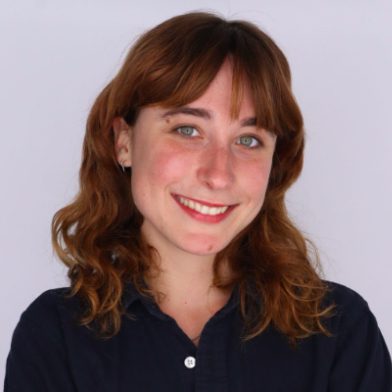Chloe Clair (’26) | Anthropology
Chloe (they/them) is a 2025 SURF L&S researcher majoring in Anthropology. For their SURF project this summer, Chloe will be researching the topic “Time Blind or Time Proof: ADHD and Alternate Temporalities.”
How did you get interested in the topic of your project?
Time has been a topic of interest of mine since I was applying to colleges and decided to write my personal statement essay about the different ways time was treated in my respective homes growing up as a child of divorce. Talking and thinking about time has always been highly personal and dynamic for me due to my upbringing but also as someone who has been diagnosed with ADHD and other mental conditions that have made me dig deeper into looking at time as both a subjective area of experience and an academic discourse. When I started studying Anthropology in college, I found that time and illness have a unique and understudied intersection. Time is so unique because it labels the real and yet produces so many different fabrications of itself, many of which we assimilate into our own everyday experiences of being in the world. Aarti Sethi, a professor of Anthropology here at Berkeley, once said during a class I attended that by being willing to critique the normal, you open yourself up to understanding the abnormal, subversive, or elusive. These words drove me to look at the normative construct of time and how it interacts with individuals who have ADHD and already face academic, occupational, and social marginalization.
How will the skills you develop through your research fellowship help you achieve your academic and/or professional goals?
Carrying out this research will allow me to expand the existing literature surrounding the multiple and varying experiences of temporality. In discussing time as a concept that must expand its definition, I will also critique existing structures that enforce this simplified, binary relationship to time and the role that other intertwined forms of liberation play in characterizing current discourse. By piloting new ways of doing disability-related anthropological work, in which subjects are co-creators of research and given agency as participants rather than presented with a baseline of being tested due to deficiency or inability to fall into “normal” ontologies, I hope to pioneer new ways of engaging with psychological anthropology, critical disability studies, and ethnographic studies. I would also like to build upon the specific area of study that concerns subjective experiences of time in those experiencing different mental states, possibly growing this body of work into one which discusses not just neurodiversity, but conditions such as Post-Traumatic Stress Disorder, schizophrenia, and depression.
What are you almost excited about as you look ahead to your summer research?
I am most excited to have a lot of conversations about time and other everyday experiences of time with people who also have ADHD. I want to understand time as a relational marker that can impact our conception of ourselves and other elements of our lives. I think it will be rewarding to relate to disability on a creative level, empowering artists with ADHD to view their neurodiversity as an area of strength rather than a deficit.
